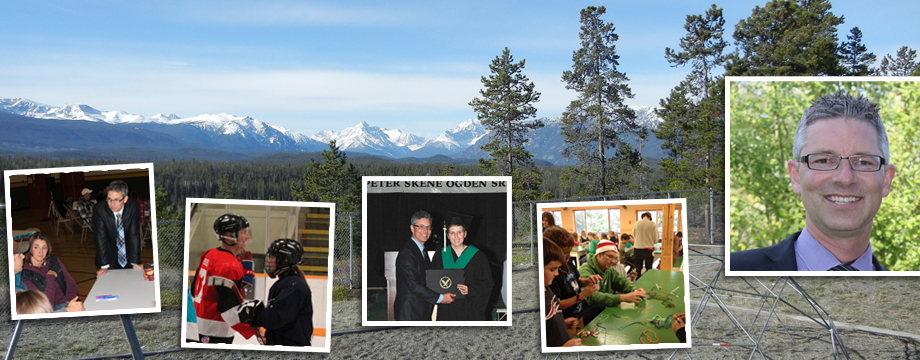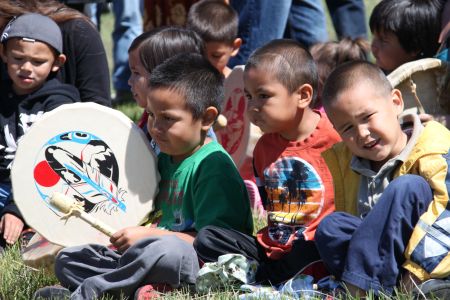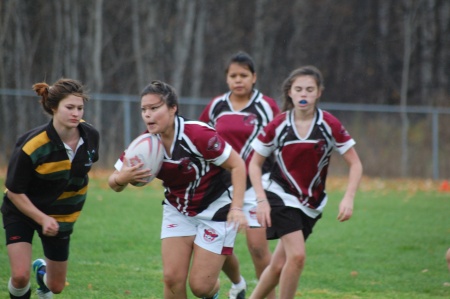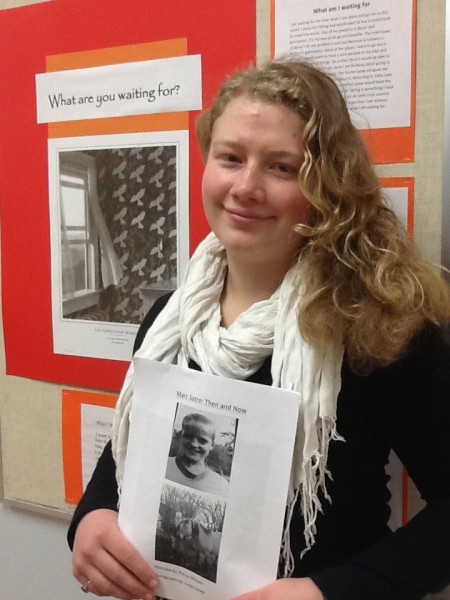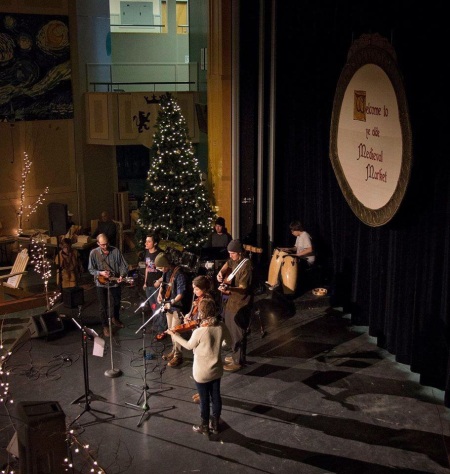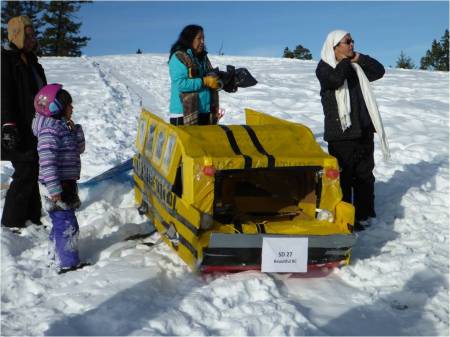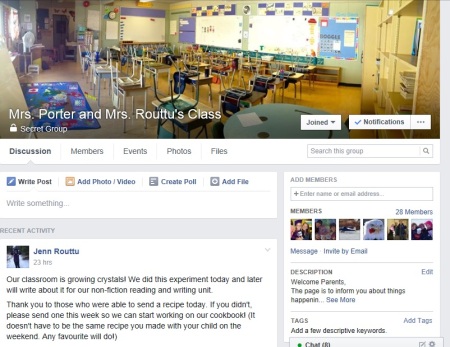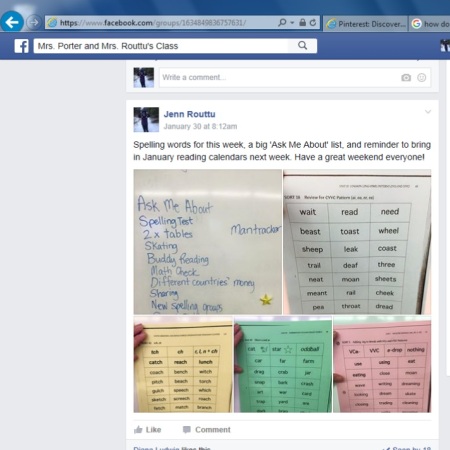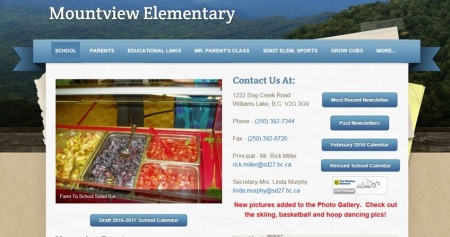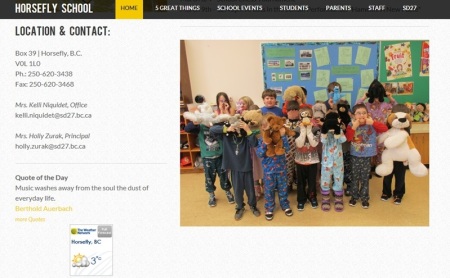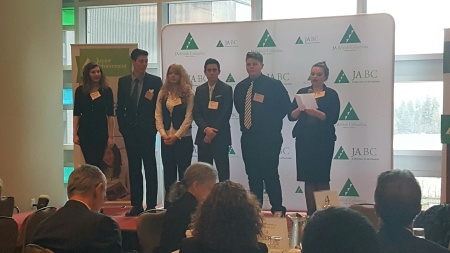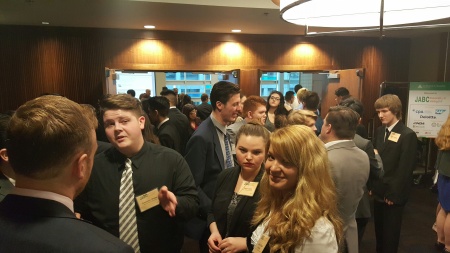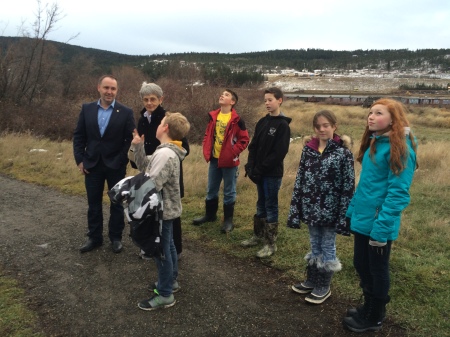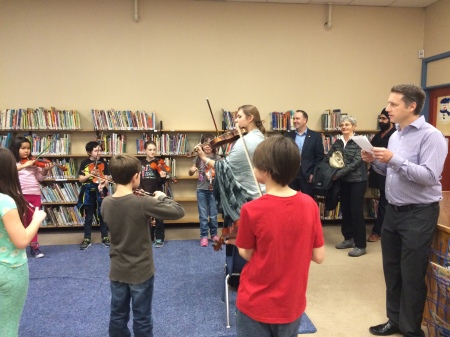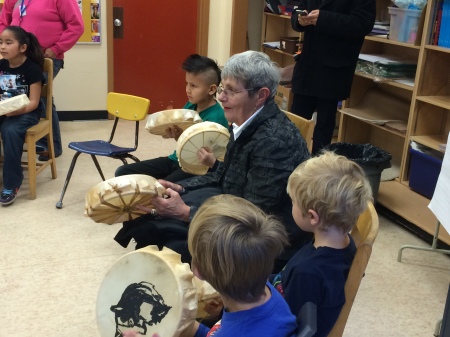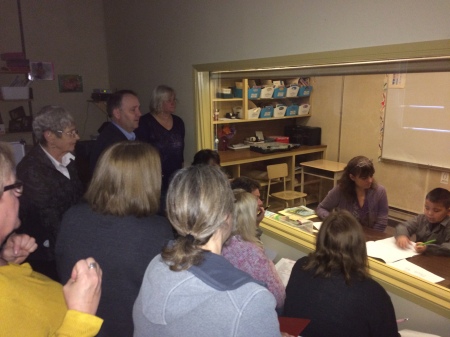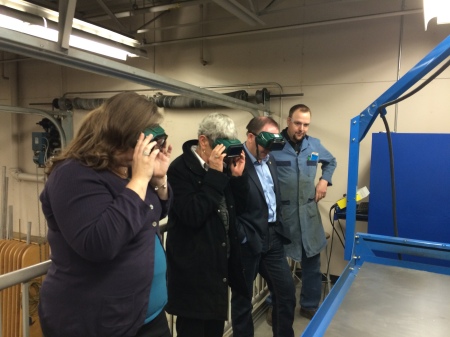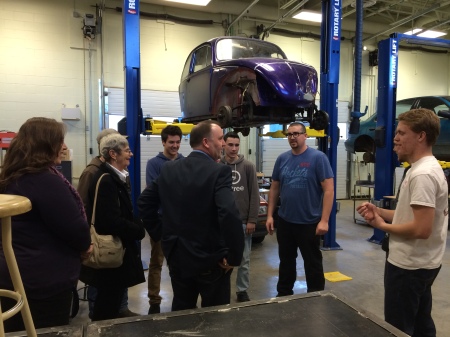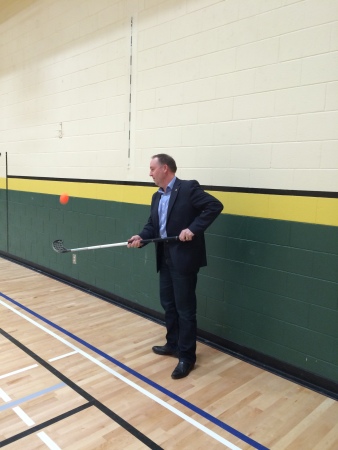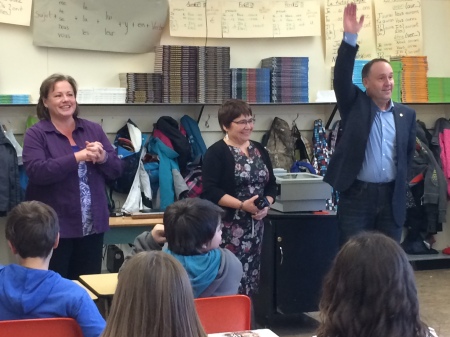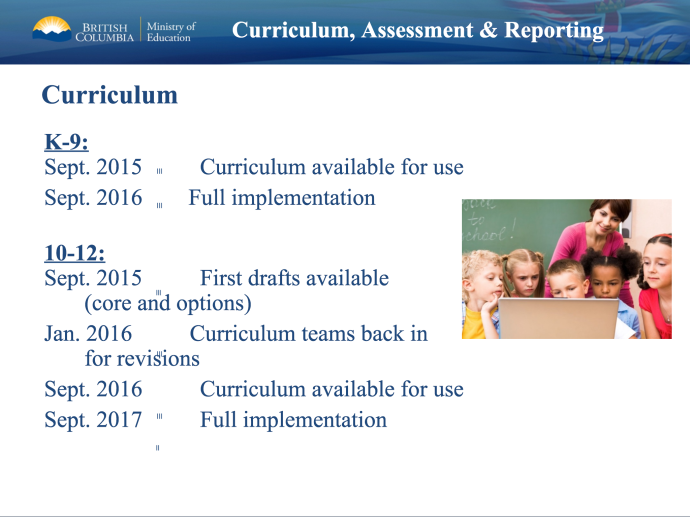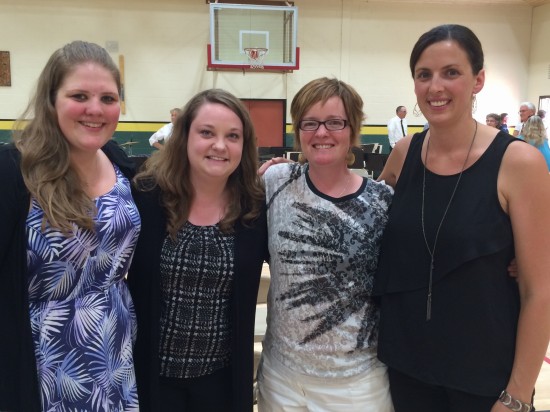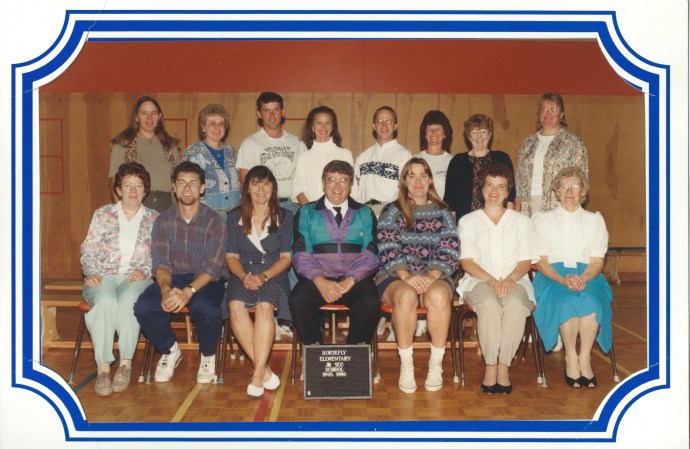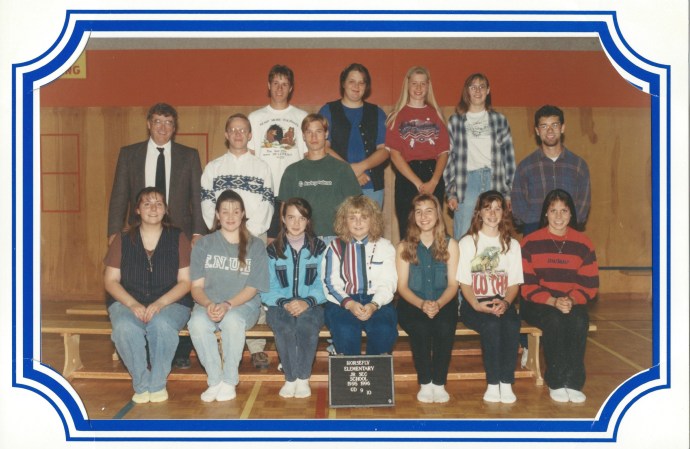Last Thursday evening, the Board of Education and senior leadership staff met for the first time to begin formulating a multi-year strategic plan. Strategic planning is the process of setting goals, deciding on actions to achieve those goals and mobilizing the resources needed to take those actions. A strategic plan describes how goals will be achieved through the use of available resources.
Of course, strategic planning can’t be done in a vacuum. Historical data must be reviewed. How are our students actually doing? What factors are leading to student success? What challenges are hindering success? How do we even define student success? Academics, social-emotional, career preparation, global citizenship …? The list goes on and on. What will our priorities be moving forward?
As part of the Board’s strategic planning, we reviewed and will continue to review all of the information gathered in our ThoughtExchange process last spring. All of the information gathered can be viewed on our School District No. 27 website at http://sd27.thoughtexchange.info/ Overall, there were 767 participants in the engagement process, 2,231 individual thoughts and 40,020 stars assigned in the prioritizing exercise.
Difficult to summarize, there were definitely some things that stood out to me as I reviewed all of the thoughts. (Quotes are from ThoughtExchange participants.)

WHAT ARE SOME CONCERNS YOU HAVE ABOUT OUR SCHOOL/DISTRICT THIS YEAR?
More students with complex, diverse needs
“There are waitlists for assessments, and students must meet strict criteria to be on an IEP, which leaves a large number of students needing extra one-on-one academic AND social-emotional help each day that are not getting the help they need to be successful. More support staff = better support.”
“The time that teachers have to focus on a child with a challenge in class is not enough. There are too many needs for one teacher and many children are left behind. There also seems to be many more behavioral issues in classes.”
Grey area kids that are not officially labeled are lost in the system
“Kids who will never have a medical label associated to their learning disability or a delay in their academic development need extra support to get them up to expectations in a timely fashion so they are able to learn at the same rate as their peers and reduce burdening the system in the long term.”
Student neediness
“As the years have gone on, it has been noticed that children are needier and needier and there are fewer and fewer supports for these children. We cannot continue to do with less and less.”
More literacy support
“There are numerous primary students who need more assistance with literacy. To ensure success throughout the school years, literacy must be strongly supported in the early years. The people who assist in the Reading Recovery program are amazing but they’re being stretched thin.”
Teacher morale impacted
“Morale of teachers and other school staff is lowering. I, myself, have experienced teacher burn-out and had to go on disability. Teachers care and when they can’t fill needs of their students they are ‘between a rock and a hard place’.
“Staff work so hard for their students. Staff in our school work very hard to support each child and their needs as best they can. With minimal additional support spread very thinly in each class amongst the students, teachers are not always able to support their students as they deserve. I think teachers feel many emotions around this.
Older buildings
“We have an older school and our facilities need a lot of maintenance. I think our staff and district maintenance staff do a great job of keeping our building safe and clean. It is difficult though with the age of our building. I am happy that plans are in the works to upgrade our school facilities in the future.”
Lack of space in some schools
“The lack of space is frustrating. There is nowhere in the school for students to go to work quietly – they must work in the hall, and this does not give them privacy.”
District changes creating gaps
“Decline in teamwork collaboration. With the changes to the district in terms of amalgamations, changes in staff, changes in administration there has been gaps developed within the teams at the schools, support services and administration and this has led to poor communication, collaboration and ultimately unpleasant work environments.”
Electronic devices impacting school culture
“In our school we do not have the need for children to have an electronic device. We have a phone at the office if necessary. These devices provide many negatives such as bullying and taking inappropriate pictures. I think kids feel pressured to have one too, to fit in. They are a negative.”
Bullying
“I’d like to see more done to change the attitudes of how students view other students. It’s like a disease that won’t go away. Some kids seem to feel completely justified to make fun of others.”
Small schools in danger of closure
“I am concerned about low … enrollment equating a lack of teacher resources. Another full time teaching position may encourage a higher enrollment, reduce teacher “fatigue” for the existing FTE position, and lead to more consistent staffing from year to year. May aid in avoiding closure as well.”
School and district leadership
“I have observed a disturbing trend that people in leadership roles are hired to do jobs that they do not have the knowledge and/or experience to do competently. As a result, gaps in services are leaving many students and schools under serviced.”
“Hiring people with inappropriate experience/qualifications. I’m concerned that our school district hasn’t demonstrated value in our staff’s experience and expertise when choosing for positions.”
WHAT ARE SOME THINGS YOU APPRECIATE ABOUT OUR SCHOOL/DISTRICT THIS YEAR?
Quality of teachers and staff
“I have really appreciated the individual attention/focus that is given to the students, perhaps because there it is a smaller school.”
“Despite all of the hurdles that have been stacked up against school staff this year (e.g. late start, residual mistrust due to teachers strike), personnel are pushing extra hard to make this year a successful one in academics and in extra-curricular activities.”
Teachers go above and beyond
“Our teachers go over and above to make sure our students are getting the best well rounded education possible.”
Connecting with students
“The teachers at … are excellent in ‘connecting’ with students. They demonstrate concern and a willingness to help students advance their education. A teacher’s approval is still a mighty motivator of academic performance, I think.
Good learning environments
“It seems that all the children feel welcome and included at the school, making learning easier.”“Our rural school is an excellent learning environment for our children. It fosters a sense of community as well as an advanced method of learning.”
“Our schools have great learning atmospheres. Children need to feel wanted, important and that they belong. Their emotional needs must be filled if they are to learn. No matter what is going on in the rest of a child’s life, school should be a safe place.”
Food programs
“These programs are great for the kids. They get healthy snacks every day and warm meals at lunch. It creates a good learning environment.”
“Offering of meals and snacks at the school grounds are much appreciated.”“The fruit bowl and breakfast program is wonderful. The fruit bowl and breakfast program is good.”
“The PAC does a wonderful job providing healthy nutritious choices to our children. The setup is great. I wish there was more of this.”
“We are lucky to have amazing staff who prepare a variety of healthy hot lunches for students. It would be great to have more financial support to also offer a Breakfast Program.”
Communication
“I really appreciate the teachers who take the time to personally email updates of your child’s progress good or bad and what is happening in the classroom.”
“I like it when the teachers give my child regular print outs of assignment marks, test marks, etc. for the classes-even when a student is doing well. This help both of us keep track of progress and attendance. Having parents sign it so everyone is aware and on the same page is a good thing to do.”
WHAT ARE SOME OTHER THINGS YOU WOULD LIKE TO SAY ABOUT OUR SCHOOL/DISTRICT THIS YEAR?
Education is not as easy as it looks.
“Kudos to all the staff in the school and the district for looking after all our kids on a limited budget, helping them to become caring, dedicated citizens, employees, parents, and community members.”
All of us need to work together.
“Appreciation goes far! Teachers, all school staff, students, administrative staff, school trustees, custodians – they all need to hear they are appreciated and that their thoughts and feelings are important to the process.”
Where is Mr. Thiessen?
“It would be good to see him in the schools, especially since all of the changes. Informal talks in classrooms and in hallways is where ‘ideas exchange’ occurs. Let’s have real conversations. Let’s see him in our halls and in our classrooms.”
Staff commitment
“I think SD27 is fortunate to have so many hard-working and committed staff. In a district which covers such a wide geographic area, it is difficult to have a sense of cohesiveness and to know what is happening in other parts of the district. I’m not sure if this process will help to address that.”
Please keep supporting the staff
“Staff relationships with the kids are the heart of the school. Kids can’t raise themselves, and lots of kids in this community need all the caring and support they can get, even if they aren’t doing much academically.”
Say thank you, please. I love my job, mostly and I work very, very hard as do most teachers. I am all grown up, sort of, 🙂 and internally motivated, but being recognized for my work once in a while would be a bonus.”
As the strategic planning process continues, we will be engaging face-to-face with staff, students, and communities over the coming months. We will publicize these meetings as more information becomes available.
On another note …
Such a fun day!
Before the Board’s Strategic Planning session last Thursday evening, I had the pleasure of spending some time with our wonderful students.
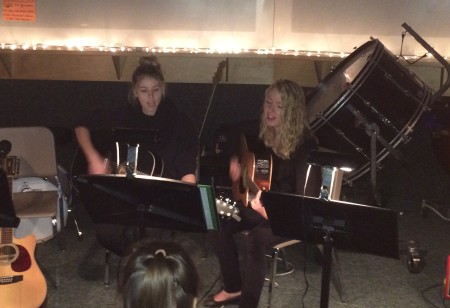
Cheyenne Shoults and Kassandra Harrison sing and play “Travelling Soldier” as part of Lake City Secondary’s guitar class presentation, “War Is Over (If You Want It)”.
The Lake City Secondary guitar class presented a very moving performance of “War Is Over (If You Want It)” in the week before Remembrance Day. It was a pleasure to witness the talents of teacher Brent Morton’s students as they used music and commentary to present a powerful message.
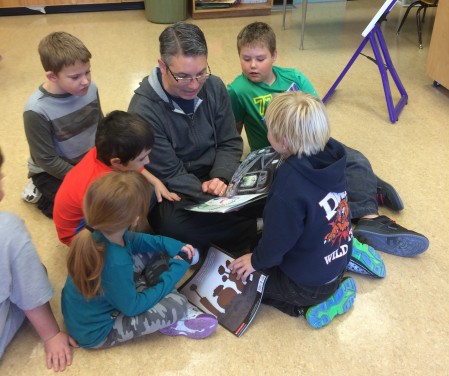
Spending some time reading with students in Mrs. Farkas’s K-2 class at Horsefly School. The best part of my job!
During the annual Rural School Volleyball Tournament, I spent some time in Kathy Farkas’s Kindergarten-Grade 2 class. When I saw one of the young students reading a book near the classroom library, I jumped at the opportunity to have her read to me. Then it was my turn to read to her. It didn’t take long for others to join the party.
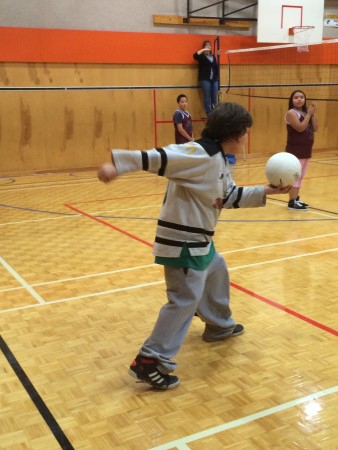
An Alexis Creek student prepares to serve in the annual rural school volleyball tournament at Horsefly School.
The annual gathering sees students in grades 4-10 compete in separate intermediate and senior tournaments. Students in the rural secondary online program also have a chance to spend some face-to-face time with their online teachers who spend their day in Horsefly too. New this year were student teams from Marie Sharpe Elementary and Distributed Learning. Many thanks go out to Horsefly Principal Holly Zurak, her staff, parents, and community members who do such a great job of hosting and feeding everyone each year.
I invite feedback and comments to any of my blog entries. As the administrator of the blog, I approve all comments before they hit the public domain. While I do not mind comments that disagree with my point of view, I will not post comments that I deem to be inappropriate, those which are personal attacks, or those which refer to specific personnel. I also will not post comments from anonymous or nicknamed sources. While one of my goals for this blog is to open a dialogue, it needs to be a safe environment for everyone involved. Thanks for considering this before making a comment. – Mark

